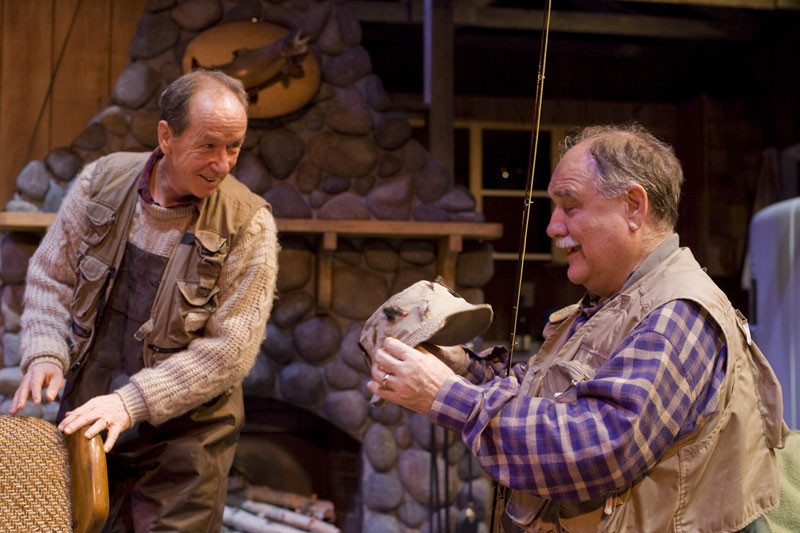Laughter as medicine
Play about two old friends who go fishing is ‘a true comedy’
There are many painful issues to be unravelled in the relationship between the two old coots, Wes and Don. Their weekend together at the fishing cabin they built during their youth may be the last opportunity to request and receive forgiveness from each other.
Perhaps this seems likes a strange location to give rise to drama, but the Cape Breton playwright Michael Melski pulls it off majestically.
Roger Schultz has created an impressive set – one that, while radiating the comfort of a living room replete with fireplace, opens up to the audience to allow fly fishing from the ample deck. It is the emptiness of this that greets the audience upon entry. This emptiness is metaphoric of the emptiness that exists within the protagonists bemoaning a bygone youth.
Played by Reg Dreger, Don is a grumpy old man in the style of Walter Matthau. A businessman all his life, he doesn’t have time for the tomfoolery of Wes, played by Michael Chiasson, a writer, who, unbeknownst to Don, is dying. We are never told of what or even, for certain, that he is but the second of two acts makes it plain.
Don, for some reason—and this is the weak link in the play—doesn’t remember who built the cabin, although he seems to have all of his mental faculties intact. He has to be reminded by Wes. The only possible motive for this is that there is a need to show the closeness that existed between the pair in their youth.
There is a third character in the play, one whose appearance is never made except by reference and recollection, but without whom the play could not exist.
This is Dave. He is a childhood chum of both Don and Wes. All three enlisted and served in World War II together. He is the reason why Don and Wes grew estranged over the years and why this reconciliation is necessary. It is this unseen but deeply felt presence that gives rise to the drama of the play – a true comedy in the Aristotelian sense.
They say that laughter is the best medicine (they being Readers’ Digest). This play elevates the PTE into the ranks of the great healers.
Published in Volume 63, Number 21 of The Uniter (February 26, 2009)







